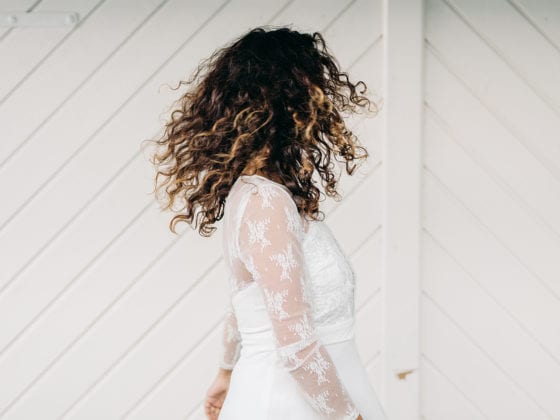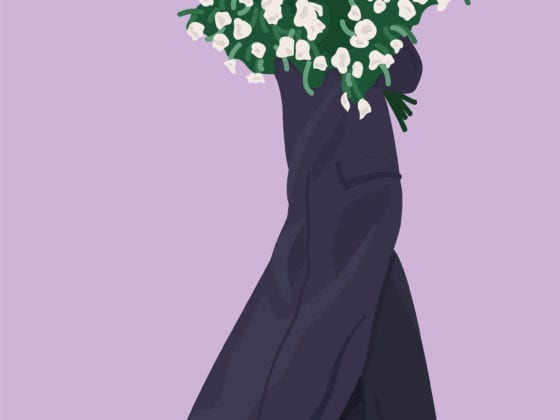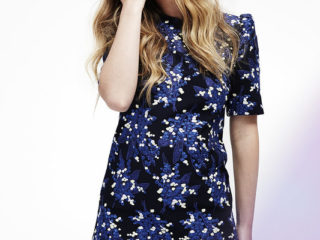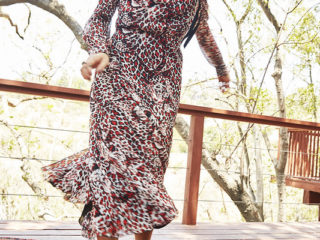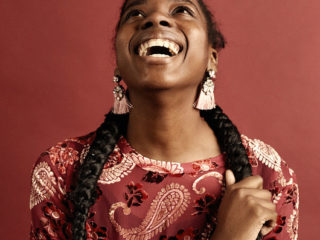The waves were epic that morning. There was a light, offshore wind, the water surface glassy as a mirror. I remember I didn’t want to miss out, so I packed my surfing gear and rushed to the beach. I remember stepping into the warm water, toes first. And I remember a pain in my chest, stingy and sudden. After that, blank.
I had a heart attack, followed by a cardiac arrest. My boyfriend performed CPR, and by doing so, he saved my life. The ambulance arrived within eight minutes; I was in surgery within 30.
The doctors performed a coronary angioplasty and placed a so-called “stent” to keep the artery open. I know all of this because people told me when I woke up from a coma a day later. They told me again and again because my brain could not, or simply refused, to remember what had happened to me. It marked the beginning of months of cardiac rehab, lifelong medication and one ECG after another. I was 30 years old.
It’s been a year now. Suffice to say, I am a different person today than I was then.
From the moment I woke up, I was afraid of fear. My body had changed overnight. It felt weak (I could barely sit up, let alone walk), and at the slightest fright, my heart responded with pain and palpitations. I suffered from memory loss and sensory overload, and I still do to this day. It felt like my body abandoned me, and I thought it was only a matter of time before it would do so again.
Now, I must say, I am not unfamiliar with fear. I went through a long period of anxiety after my father’s passing when I was 20 years old. I was afraid then, too—not of death, but of pain, of loss and of being left alone. After the heart attack, I was afraid that same fear would come knocking at my door again, like an old, unwanted acquaintance.
I was afraid that same fear would come knocking at my door again, like an old, unwanted acquaintance.
It did, and I let it in. I knew resisting would be pointless. It would invite itself in, pick every lock, burst through the door if it had to. Hello there. Long time, no see.
Of course, it doesn’t serve you to fear something that you don’t have any control over. I was granted a second chance at (what I intend to be a long) life, and I decided I wasn’t about to let fear ruin it for me. However, just because you tell yourself you should let go of something doesn’t make it so. I didn’t let go of fear. Instead, I tried to let it be.
I didn’t let go of fear. Instead, I tried to let it be.
There he sat, Mr. Fear, bold as brass. Here’s what he did to me when I decided not to converse with him, fight with him or avoid him—absolutely nothing. He just stared at me point blank. Somewhere in the past year, we have found a way to co-exist somewhat peacefully.
We’re not friends, and we never will be. We have quarrels, as roommates do. Occasionally, someone throws a glass at the other, but most of the time, it is OK to have him around.
Don’t get me wrong. When my heart beats like it’s trying to escape my chest—a new sensation I have grown accustomed to—I can sometimes still feel a sense of panic rising. I can still wake up sweating and panting from a nightmare in which a loved one died. I still run away when a wasp flies too close to my face. Indeed, Mr. Fear still creeps up on me, even when I tell him to back off, but I am not afraid of him anymore.
If you took inventory of your fears, how many are things outside of your control? How have you learned to manage fear?
Image via Angi Welsch, Darling Issue No. 7


